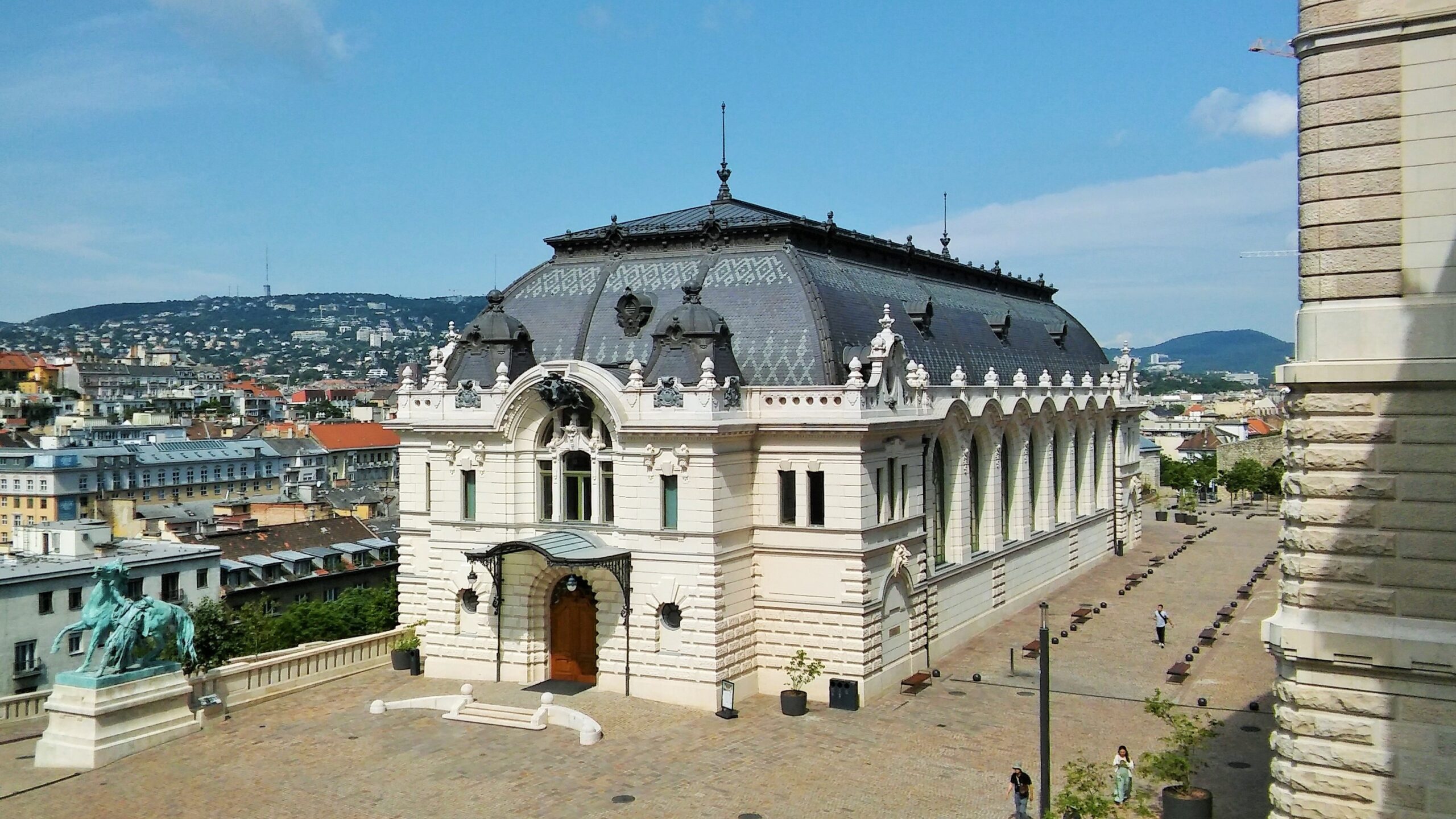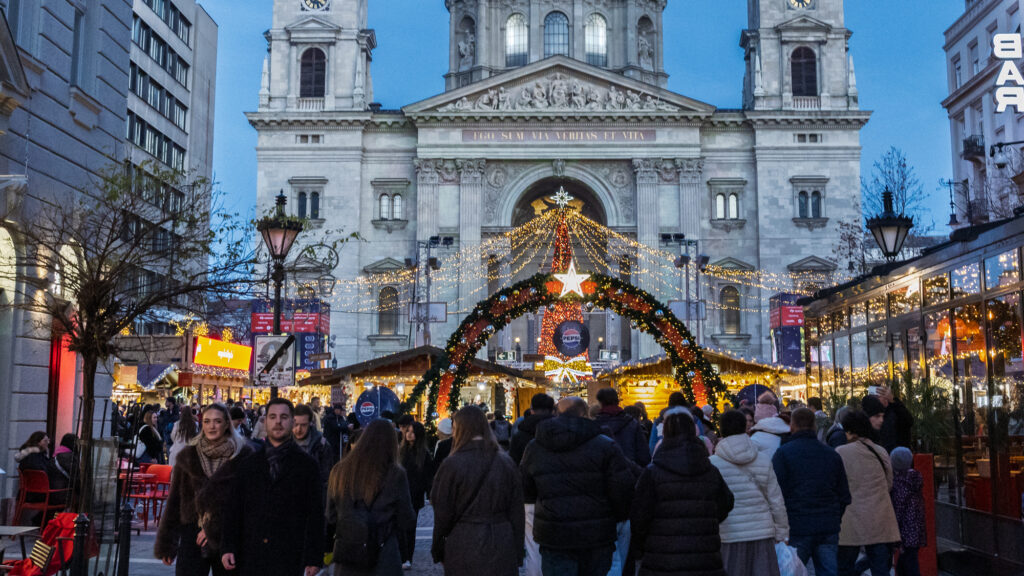Audrey Unverferth is a young American woman who lived in Budapest for a few months, and loved it here. But her beloved grandparents back home are ailing, and the call of family was too great. She said goodbye to her adopted city, and returned to her family in the American West. She recently wrote about her decision in The European Conservative, including her hope that Hungary manages to stay true to itself, and its own traditions.
A Hungarian American friend of mine read that essay, and wrote to me to talk about the life he has built in his American city, but how much he also yearns for the country of his ancestors, which he visits as often as he can. My friend said:
‘I have been given a tremendous gift. My wife and I both have good jobs. Our daughters are doing well, academically, socially and musically. We have a strong network of friends and family. But sometimes I feel guilty for my contempt and disdain for [our town] and what has happened to its downtown with its vacant storefronts, foreign grocery stores, nail salons and ethnic barbershops and the ubiquitous smell of marijuana, and I am angry towards the politicians that allowed this to happen. I contrast that with the beauty of Budapest and Hungary and its sensible public policies and the attitudes of the general population. I want to scream from the hilltops in Buda, “Don’t let this happen in your wonderful country!”’
Having lived in Budapest for three years, I know the feeling well. I encounter it every time I leave Hungary for some other European locale. It is striking how much peoples in foreign cities have allowed the quality of life in their cities and towns to decay—mostly through mass migration, but in other ways too.
As my Hungarian American friend observes, this is also happening in America. I am an expatriate who loves his country, but it is depressing to return there for a visit, and to see in some places the same kind of decay that my friend lives with in his town. It is not entirely about migration: the immigrants aren’t responsible for the marijuana problem, or most of the crisis of criminality, or the corruption of institutions conquered by wokeness.
We don’t have any of that in Budapest. We don’t have it in large part because we don’t have mass migration. We don’t have it because Hungarians are hard-headed. And we don’t have it because despite all its problems, Hungarian culture remains fairly conservative and resilient.
No doubt Hungary has plenty of challenges. Many Hungarians believe that the health care and educational systems are underfunded. Hungary is ever at odds with the hostile European Union bureaucracy. Hungarians are poor relative to other EU nations. Thirty percent of Hungarian newborns are born to single mothers, and like every other European nation, Hungary struggles to raise its overall birthrate. There are other problems too. Hungary is not paradise.
‘Despite all its problems, Hungarian culture remains fairly conservative and resilient’
What Hungary has that other European countries do not is a strong sense of itself as a particular people with a particular language and history. Unlike in many Western European countries, the Hungarian system does not train its young to despise their country’s culture, and Western civilization. It is true that only a minority of Hungarians (42.5 per cent) identify as Christian, but the country is nevertheless culturally Christian—for now—in ways that one does not see in most other European countries. The point is, Hungary has the internal resources to resist the decadence and dissipation that has overtaken so many other Western countries. Hungarians believe in themselves—and that is something so apparent to Western Europeans and Americans who visit.
It might not last. You cannot hold forever on to the cultural fruits of the Christian faith without practicing it. One hears talk among Hungarians that occult practices are rising among the young—this is also true in the United States—as Christianity fades. Plus, a Hungarian Catholic friend in early middle age tells me that young adults here seem to want little more than for Hungary to become a Magyar version of Sweden: rich, secular, and hedonistic. What does it profit a country to have kept migrants out if it nevertheless loses its soul?
A strong future for Hungary, or for any nation, is not guaranteed. Still, as foreign admirers of Hungary can see plainly, this country has so far avoided the worst cultural and social trends that are devastating other Western nations—especially mass migration, wokeness, and widespread drug use—and therefore will have an easier time saving itself. But Hungarians have to want it. The government cannot force it on people.
What the government can do is create a legal and material environment that make it easier for the Hungarian people to choose well. In the UK online magazine UnHerd, Wessie du Toit writes about the architectural traditionalism now remaking—or rather, restoring—Budapest. He credits—or blames—Prime Minister Viktor Orbán, who is carrying out a political goal of restoring a sense of national greatness.
‘The reconstruction of grand Gothic, classical and baroque structures evokes not primarily the Horthy era, but an earlier moment when, as a partner in the dual monarchy of Austria-Hungary, Budapest stood as a prestigious European capital. At the same time, reminders of Hungary’s historic vulnerability serve to sustain a nationalist siege mentality.’
Du Toit notes that left-wing critics of Hungary’s approach, and similar building schemes in other countries, condemn it as reactionary, and appealing to a false and romanticized view of the past. The problem with this, du Toit says, is that progressives also believe that architecture should serve a deeper agenda—theirs.
‘[S]omeone has to decide how a building should look, and it can only have one form. If it indulges a popular appetite for heritage, pride, beauty or spectacle, it can be called populist. The only path left for progressive architecture is therefore one of negation, denying aesthetic expectations in the name of being inclusive or “challenging”. That tends to result in something like the Scottish Parliament Building in Holyrood, well regarded by design aficionados but broadly considered a depressing mediocrity.’
Most, though not all, modern buildings are so ugly that only an intellectual whose head is crammed with theory can love them. The entire point of architectural modernism is to repudiate the past. Yet public spaces belong to everybody, not just intellectuals and cultural elites. A people that loves its city, not just in the abstract and general, but in the concrete and particular, is more likely to care for it, and to defend it.
‘The cultural habits and traditions that make Hungary Hungary will only endure if Hungarians avoid the mistakes other nations have made’
Traditional architecture has proven its worth; the masses would not love it if it did not in some way meet their needs and desires. Beautiful buildings not only delight the eye, but also remind those who live among them that they are a people who come from somewhere, and encourages them to move into the future with this awareness of a debt to the living past. As Winston Churchill said, ’We shape our buildings; thereafter, they shape us.’
The United States is an anti-traditional society, and it shows in its built environment. It is a country marred by endless miles of utilitarian strip malls and shopping centers. A commercial architect friend there told me once that he would like to design more beautiful buildings, but clients are only interested in functional structures that can be constructed cheaply.
To be fair, America is such a mobile country that investing in a more complex, beautiful building is a serious risk, as nobody can predict that the neighborhood or district will be prospering a decade or two from today. Besides, the United States is a society dependent on cars—a fact that drives its architectural and planning choices.
Result: America is a land that reflects what the critic James Howard Kunstler calls ‘the geography of nowhere’. Americans who want to see beautiful Somewheres travel to Europe. Budapest is a glorious Somewhere—but it will only remain so if Hungarians protect it.
In the same way, the cultural habits and traditions that make Hungary Hungary will only endure if Hungarians avoid the mistakes other nations have made. ‘Tradition is not the worship of ashes, but the transmission of fire,’ said Gustav Mahler. Architectural modernism has not the power to warm the heart nor sustain fire in the mind; it is often a dead thing, no more alive than a pile of ashes, however gleaming its façades and gushing the reviews in prestigious journals. The same is true of moral and social aspects of modernity, which have freed people from the constraints of the past—but for what?
That is not a question that many people can answer in countries that have drunk deep from the poisoned chalice of modernism. But Hungarians still can, for the most part. This is why my Hungarian-American friend, having seen his own beloved town fall apart under the pressures of contemporary life, and the failure of its people to love and defend their inheritance, screams across the ocean, ‘Don’t let this happen in your wonderful country!’
Life is not easy for many Hungarians, but Hungary has one big thing going for it: a strong sense of itself as a nation and a people. If it is true that hope comes from cultural memory married to the desire to return to what is good, true, and beautiful about the past, then Hungarians have every right, and indeed the responsibility, to be hopeful, even as the chill darkness of forgetfulness and cultural dispossession settles over Western Europe.







